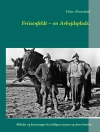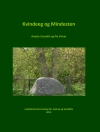This book discusses the displacement of urban populations, inequality, and poverty in three cities in South Asia—Colombo, Jaffna in Sri Lanka, and Kochi in India. It focuses on the long-term effect resettlement and relocation has on the lives and livelihoods of urban internal displacement of populations (IDPs) primarily from urban poor classes. It also discusses the concerns faced by the displacement in post-war Sri Lanka. It examines the impacts of conflict on poverty and recovery in peri-urban settings. It emphasizes the role of agency of urban IDPs in strengthening their own well-being. It draws attention to how the agency of urban IDPs is compromised by the displacement processes and the weak local level governance structures in the cities. The book is intended for researchers, graduate students, and teachers of Geography, Social Policy, Refugees and Migration Studies, History, International Development, Urban Studies, and South Asian Studies.
विषयसूची
Introduction.- From a horizontal to a vertical lifestyle: Impact of relocation on sense of belonging.- Conflict, Poverty and Recovery in Passaiyoor East in Jaffna City in Sri Lanka.- Rethinking Internally Displaced Persons (IDPs) in Cochin City: Ignored and Concealed.- De-housing and re-housing- Evictee’s reflections on the process: the experiences of relocation in Colombo and Cochin.- Older person’s lives in relocated community: a case study of development induced relocation in Colombo, Sri Lanka.- Conclusions and recommendations.
लेखक के बारे में
Rajith W. D. Lakshman is a Research Fellow at the Institute of Development Studies, UK, with over 15 years of experience in collaborative research on internally displaced persons (IDPs) and refugees. His work broadly focuses on the inter-section of gender, migration, wellbeing, and refugee studies. His more recent work examines the relationship between urbanization and forced displacement, specifically exploring the impact of IDP and refugee movements on host communities in the urban context. He has published widely on these topics and has served as a consultant to various national and international agencies. Rajith’s research sheds light on the importance of understanding the complexities of forced migration and the need for inclusive, community-led solutions.
S. Irudaya Rajan is Chair of the International Institute of Migration and Development (IIMAD), India and chair of the KNOMAD (the Global Knowledge Partnership on Migration and Development) thematic working group on internal migration and urbanization, World Bank. Earlier, he was a Professor at the Centre for Development Studies, and Chair, Research Unit on International Migration (RUIM), funded by the erstwhile Ministry of Overseas Indian Affairs, Government of India (2006– 2016). Dr Rajan is the Founding Editor in Chief of Migration and Development (Sage) and the editor of two Routledge series—India Migration Report and South Asia Migration Report. Rajan has published extensively in national and international journals on demographic, social, economic, political and psychological implications of international migration. Professor Rajan has coordinated nine major large-scale migration surveys in Kerala since 1998 (with K C Zachariah), Goa (2008), Punjab (2009), Tamil Nadu (2015) and instrumental for Gujarat (2011), Odisha (2023 and Jharkhand (2015).












